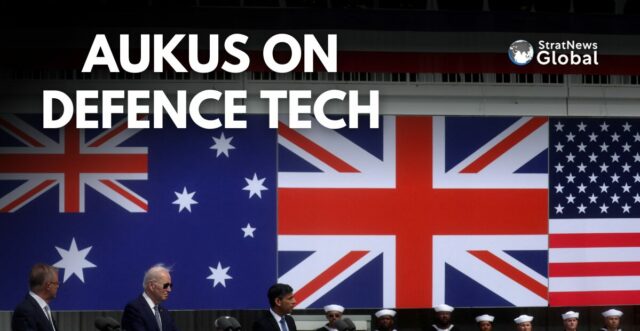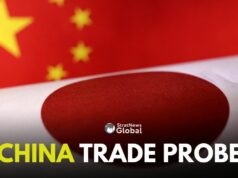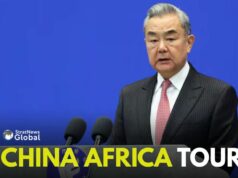AUKUS partners—Australia, Britain, and the United States—announced on Wednesday that they are in discussions with Canada, Japan, and New Zealand about potential collaboration on defence technology projects. This comes as part of their efforts to expand the AUKUS partnership beyond its initial scope.
AUKUS Pillar Two: Expanding Partnerships
The AUKUS alliance, primarily focused on delivering nuclear-powered submarines to Australia in the next decade, is now exploring other advanced weapons development under what is known as “Pillar Two.” This phase of the agreement does not involve nuclear submarines but focuses on enhancing capabilities that will strengthen deterrence in the Indo-Pacific region, particularly in light of concerns over China’s naval build-up.
The leaders of Australia, Britain, and the US issued a joint statement marking the third anniversary of AUKUS. They confirmed ongoing consultations with Canada, New Zealand, and South Korea to explore collaboration on advanced defence technology. “We are consulting with Canada, New Zealand, and the Republic of Korea to identify possibilities for collaboration on advanced capabilities under AUKUS Pillar II,” the statement said.
Canadian and New Zealand Reactions
Canadian Defence Minister Bill Blair recently indicated that Canada is in talks with AUKUS regarding involvement in certain projects, though specific details have not been provided.
New Zealand, which has maintained a strong nuclear-free policy, is cautiously considering what involvement in AUKUS Pillar Two might mean for its strategic and economic interests. New Zealand’s Foreign Minister Winston Peters emphasised that this consultation is ongoing, stating, “We will continue to have an open and transparent discussion with New Zealanders about the issues at stake.”
Focus on Indo-Pacific Security
This extended collaboration under AUKUS Pillar Two highlights the growing concern over security in the Indo-Pacific region. The potential inclusion of Canada, Japan, and New Zealand in defence technology projects signifies the broader global interest in addressing rising tensions and strengthening regional deterrence.
(With Inputs from Reuters)
Research Associate at StratNewsGlobal, A keen observer of #China and Foreign Affairs. Writer, Weibo Trends, Analyst.
Twitter: @resham_sng





